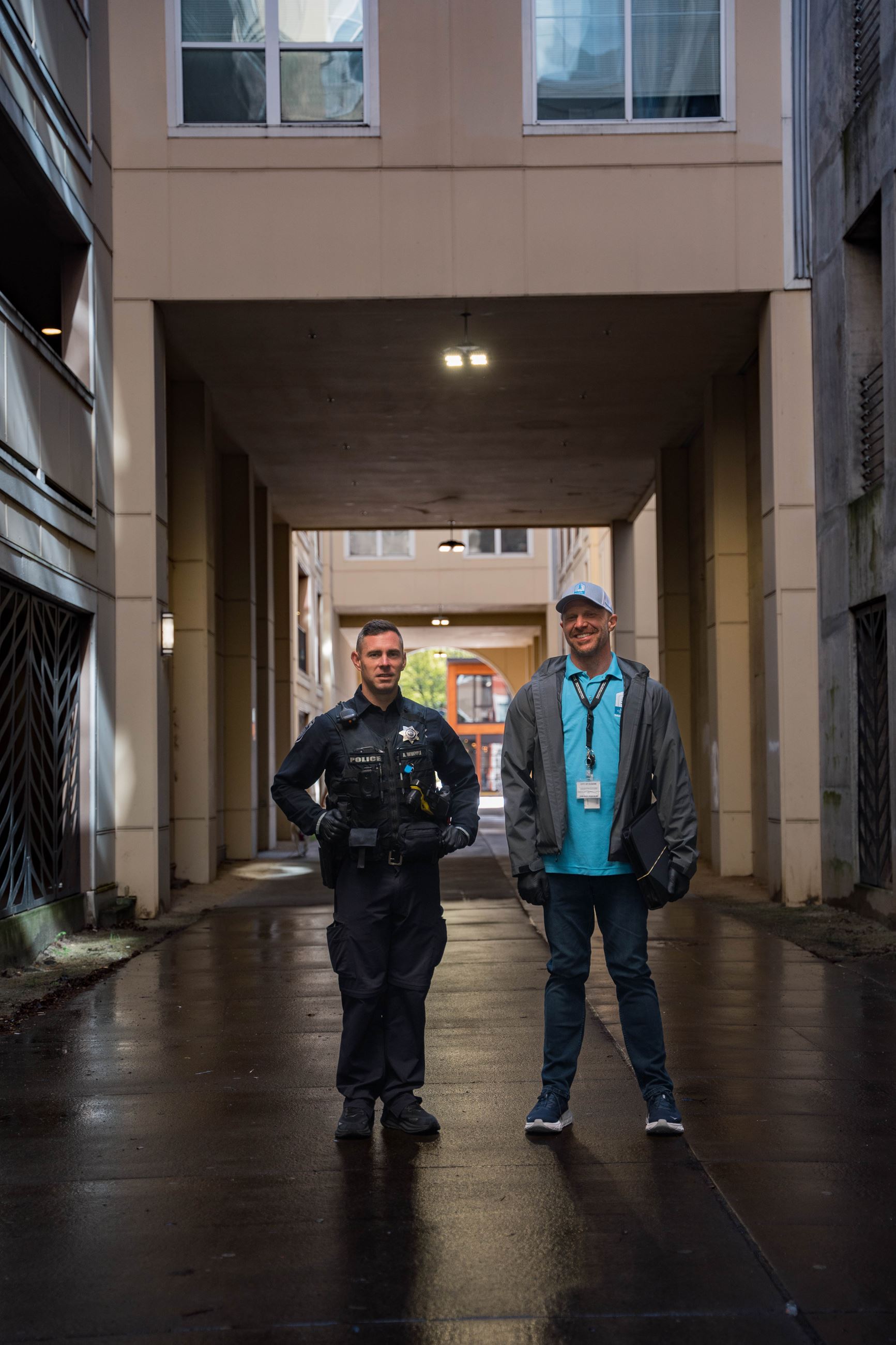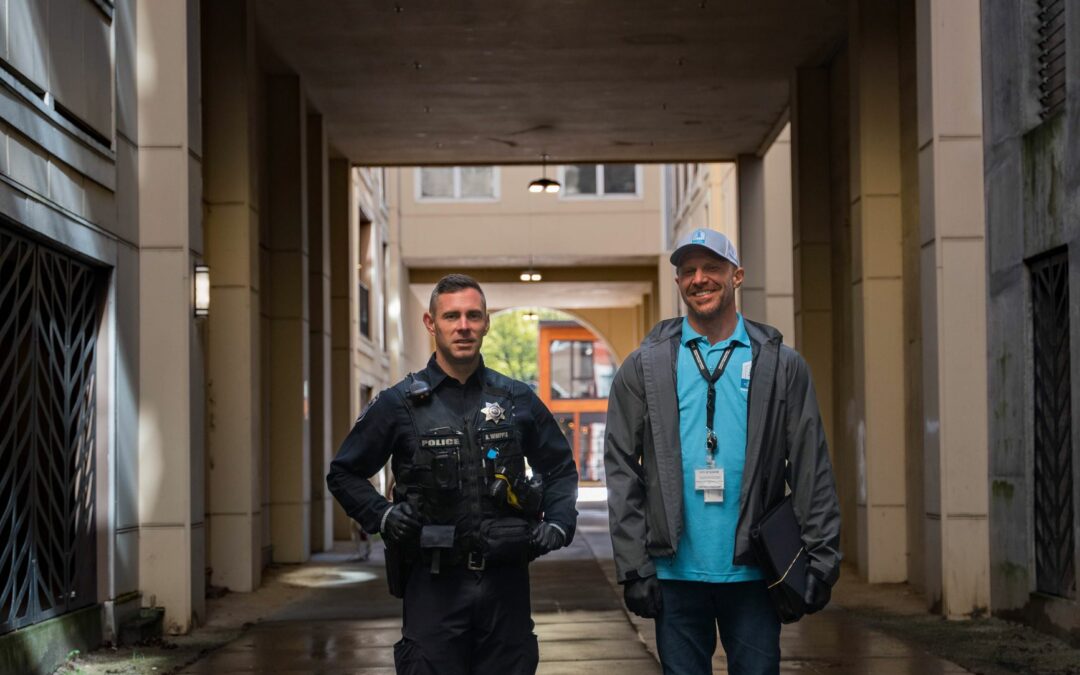
Community Safety Payroll Tax funds new way to respond to people experiencing mental illness, addictions and crisis downtown with a planned expansion in 2025
Under a new alternative police response model, funded by the Community Safety Payroll Tax, a Lane County Behavioral Health (LCBH) professional is embedded with police downtown and is responding alongside EPD officers to calls for service involving people experiencing a behavioral health or life crisis.
This is an exciting outcome of many discussions about alternatives to police response over the past few years and it has now rolled out Phase 1 of a Co-Responder Program with the hiring and staffing of a Lane County master’s degree level Qualified Mental Health Professional (QHMP), master’s degree licensed Clinical Supervisor, and downtown officers.
Eugene Police submitted a grant to the Bureau of Justice Assistance and has received $550,000 in funding, which will be ‘matched’ by $254,854 in City funds.
This alternative response model works to reduce police contact on low to moderate risk calls and to divert police from non emergency calls for service involving people experiencing a behavioral health or life crisis. The City’s Co-responder program is designed to address together the criminal and behavioral health elements in calls for service downtown. This will help address public safety needs and decrease the likelihood someone will be incarcerated. The new program provides a stronger pathway to treatment for individuals with mental health, addictions, crisis, or co-occurring mental health and substance use disorders. Co-responder teams will include a QMHP embedded within an EPD police unit (on foot, bike, or in vehicle), and these teams will respond immediately to behavioral health-related calls for service when on shift. The QMHP will conduct rapid behavioral health clinical screenings, assessment, diagnostic, and care coordination services for individuals with behavior health concerns that have frequent police contact.
The City’s co-responder model will include a QHMP contracted through Lane County Behavioral Health who is supervised by the Forensic Intensive Treatment Team (FITT) clinical supervisor. The QMHP and clinical supervisor will work within the EPD Downtown Team. Together the mental health professional and EPD officer will go to calls for service involving individuals with mental health and/or co-occurring substance use disorder(s) and a history of frequent police contact. The co-responder team will work together to co-respond and provide rapid access to psychiatric care, initiate clinical and case management referrals, provide triage, assessment, treatment, and support clients during court procedures. This new program is expected to improve Downtown safety, increase access to behavioral health services, and decrease individuals’ repeat encounters with the criminal justice system.
Initial costs of the program are expected to be $400,000 over the Fiscal Year 2023-2025 biennium and are funded through the Community Safety Payroll Tax, which will include the BJA grant matching fund requirement of $254,854 . The program expansion is expected to begin in late 2024 and will be covered by $550,000 in BJA grant funding. Phase 2 of this project will include an expansion adding an additional QMHP position and a peer support specialist, which would bring the fully staffed team to: two QMHPs, one peer support, one clinical supervisor, and two officers.

Original Article: Source

